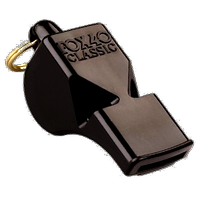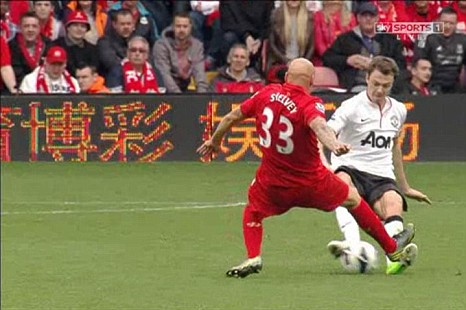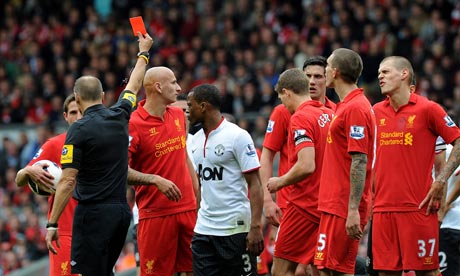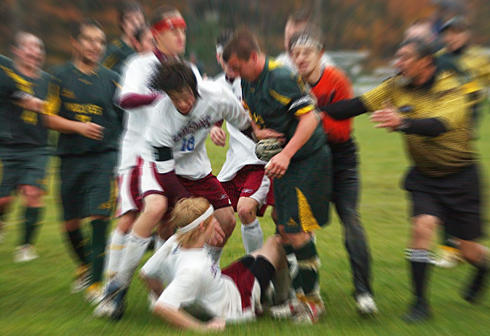| |
 |
QUICK or SLOW WHISTLE?
Andrew Castiglione
Founder of Ken Aston Referee Society
 |
" Don't wait for something else to happen because... It will probably be bad!!! "
Having watched at least 100 times the play on which U.S. national team player Tab Ramos’ cheek was broken,
I wonder if it could have been prevented. The incident started when Ramos grabbed Brazilian defender Leonardo and
dragged him off the field. Leonardo retaliated by elbowing Ramos in the head.
The referee apparently saw the entire incident, because Ramos was cautioned and Brazil received a free kick.
Could the incident have been prevented if the referee had blown the whistle more quickly?
(FIFA later severely sanctioned Leonardo even more than what referee could do. It was a stern pronouncement).
There are times when the referee watches and waits for the outcome of an
unfair challenge to determine if he/she should blow their whistle.
Sometimes while the referee waits, an ordinary foul turns into a
disaster. On the other hand, there are times you blow the whistle too
quickly and stop the game for trivial incidents. That reduces the
player’s enjoyment. So, when do you blow a quick whistle and when do you
wait and watch?
There is no single best way to handle these situations since you are
dealing with individuals and different temperaments. However, there are
ways to increase the probability you will make the right decisions at
the right time. Make a judgment about the players you are dealing with.
Have they shown themselves to be fiery and high-strung? Have they been
calm and methodical? Have they been very aggressive or laid back?
Hot
tempers require quick whistles, unless you are the one causing the hot
temper by trying to over control a skilled game.
 
Older, more skilled and more experienced players are likely to accept a
physical challenge of questionable legality as part of the game. Those
people have played enough to know what to expect and generally will not
overreact. On the other side of that coin, those players know when
someone is trying to hurt them or is beyond the bounds of reasonable
play. If the players feel you are nor providing adequate protection they
will take matters into their own hands. You could have a serious
incident.
Players generally accept challenges with the shoulders, body, and arms
unless they are violent or grossly unfair, as was Ramos’. Skilled
players do not mind fending off physical challenges because they feel
they can win their share. No one likes getting hit in the ankles or
poked in the Achilles’ tendon, so challenges below the knee need to be
called quickly.
Only the most patient and experienced players tolerate a physical
challenge for more than a couple of seconds without some grabbing,
pushing, hip checking, etc. That becomes truer when the player begins to
lose the challenge as a result of unfair contact. At the point, quickly
call the foul because retaliation can be sudden and violent. If you are
close, you can let them know you are there by saying, "keep it clean".
The important thing is separating the players.

Tempo. The game’s mood is a significant factor in how
quickly you stop play. If the match is played with mutual respect, there
is less chance of retaliation and you may not wish to blow the whistle
for borderline challenges. If you have a number of hard fouls, flaring
tempers and chronic complaining, you should stop play more quickly.
For challenges in the back, elbows up or a stiff arm in the
chest, blow the whistle quickly. Don't wait for something
else to happen because it will probably be bad. If conditions are
favorable, you can wait, watch and avoid stopping play faster and with
more fun. If conditions are hostile, it is better to stop play quickly.
Retaliation turns a minor foul into a major incident.
|